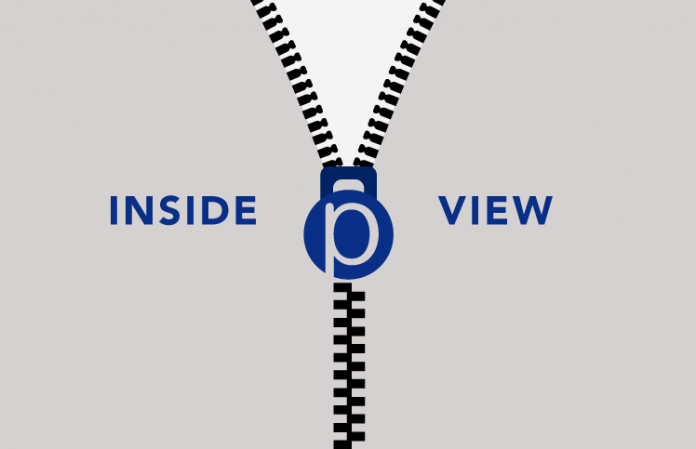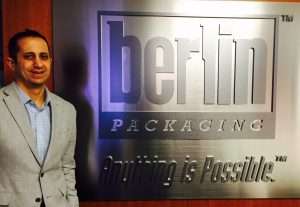
In this month’s Inside View column, Berlin Packaging’s Senior Manager of Business Development and Strategy Paul Mansour discusses how the company’s rapid growth through multiple acquisitions impacted Berlin’s long-standing corporate culture.

Over the past decade, this leading full-service supplier of plastic, glass, and metal containers and closures grew more than six times the market rate. While multiple acquisitions contributed to the most recent expansion, Berlin Packaging’s leaders attribute the company’s long history of business success largely to its focus on employee engagement and a culture of shared commitment to “being Greater, Faster.” It’s a culture that was developed more than 20 years ago when the company adopted a set of values to govern the employer-employee relationship.
The values, outlined in a tool called the Berlin Values T-Chart, spell out a mutual obligation between the company and its employees. One side of the T-chart lists the practices and benefits that the company owes its employees to provide an opportunity for individual growth, such as leadership, coaching and training, a chance to grow, collegiality, job security and rewards. In return, employees contribute to the success of the company through behaviors such as a strong work ethic, productivity, innovation, teamwork, loyalty and profitability (which are listed on the other side of the T-chart).
Berlin Packaging’s T-chart provides a common framework for the daily interactions between managers and employees. Managers apply it in their communication with employees during the hiring process, coaching and feedback sessions, team meetings, performance reviews or when evaluating employee feedback. “We use the T-chart in multiple touchpoints with employees to help us understand whether we, as managers representing the business, are living up to the obligations that we’ve set forth for our employees,” Mansour explains. “In addition, as managers and employees, it guides us in our behavior as we focus on the other side of the T-chart. We continually ask ourselves: Are we providing high levels of productivity and a strong work ethic? Are we innovative; are we thinking outside the box? Are we doing work that is profitable? Are we loyal to the organization?”
Rapid Scaling Tests the Culture
While Berlin Packaging’s values kept it strong throughout the economic slump, post-recession growth created new challenges that put the company’s values and culture to the test. From 2010 through 2012, Berlin Packaging acquired four additional companies, doubling its employee base from 250 to 500. The stream of new employees brought with them their own set of values, perspectives, practices and expectations from their previous companies.
As company leaders focused on driving value from the synergies between the newly acquired companies, the gap between existing and new employees began to widen. Berlin Packaging’s leadership team realized that they needed to better understand how employees felt about the business’ growth and new working environment, and get to the root of the frustrations that typically surface when blending new and established staff.
The solution? The company had recently begun using the Net Promoter methodology to collect feedback on customer engagement. Leaders decided to take a similar approach with employees. To gauge the current level of engagement across the larger organization, Berlin surveyed employees, asking: “How likely are you to recommend working at Berlin Packaging to a well-qualified acquaintance (to a friend or someone you know)?”
To allow for a deeper dive into the reasons for the employee’s rating and to identify opportunities for action, the survey included four additional questions:
- What keeps you at Berlin Packaging?
- Is there something important that Berlin Packaging should start doing?
- Is there something important that Berlin Packaging should stop doing?
- Is there something important that Berlin Packaging should continue doing with more gusto?
The Berlin Values T-Chart provided employees with a frame of reference for their responses. “Employees focus on the elements listed on the left side of the T-chart—what Berlin owes its employees—when considering what they think the company should start doing more of, should stop doing or should continue doing with more rigor,” Mansour explains.
Importantly, company leaders didn’t just listen to the employee feedback; they took immediate steps to identify opportunities for action. Once again, the T-chart came into play. Berlin’s leadership team analyzed the survey results, focusing on the elements that Berlin owes its employees.
While it’s critical to measure employee engagement scores to track improvement, Mansour points out that what’s more important than the score is the feedback that the employee provides, and making sure that you go back to employees with a specific action plan for improvement. “Tell employees what you’re doing, give them updates on your progress, and get their feedback,” he says. “It’s a mutual process for improvement. If you don’t follow-through on their feedback, the trust will be broken.”
Read the full story about how Berlin Packaging engages its employees in a mutual commitment for growth and success.




